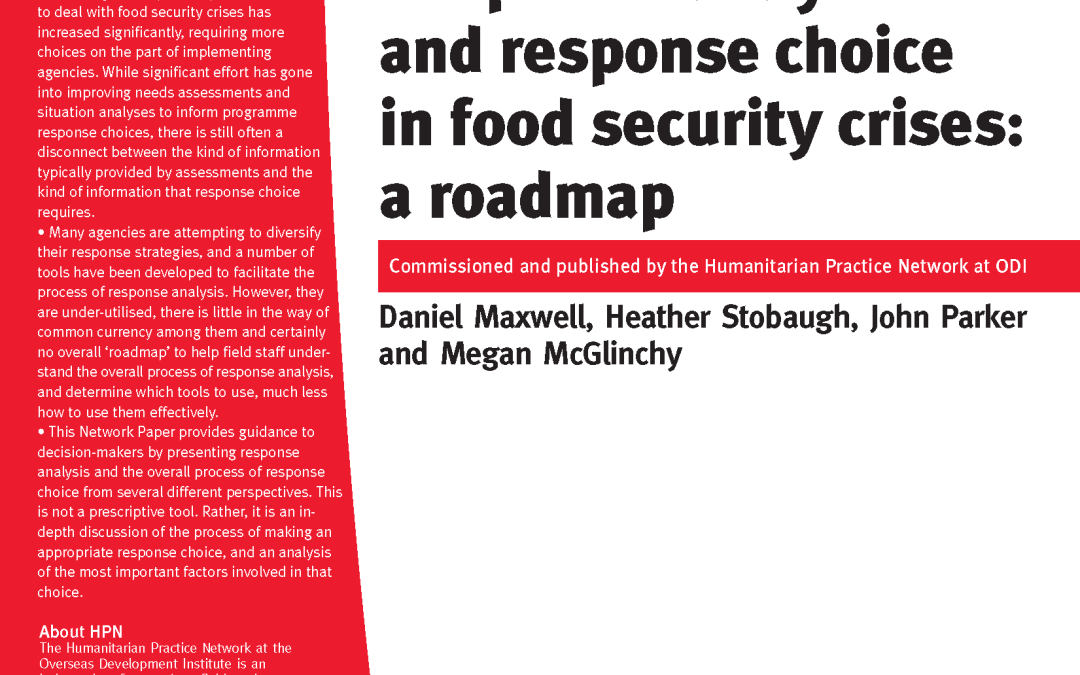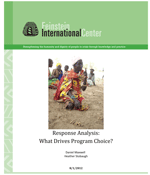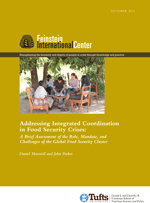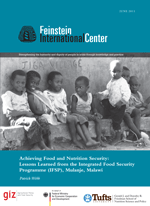
by Annie DeVane | February 25, 2013
The term ‘response analysis’ implies that response choices are made solely on the basis of evidence and analysis. However, many factors contribute to how agencies select a response, and ‘response choice’ does not always involve an evidence-based, analytical process.

by Kristin Carnes | August 10, 2012
This research considers “response analysis”: the analytical process by which the objectives and modality of program response options in an emergency are determined. The research question was whether improved analysis drives program response choices in humanitarian food security interventions?
by admin_jackrabbit | May 15, 2012
This project seeks primarily to clarify some of the underlying causes of the chronically high levels of acute malnutrition found in pastoral regions in Ethiopia, Somalia, and Uganda.

by Kristin Carnes | October 12, 2011
In May 2011, the Food and Agriculture Organization (FAO) and World Food Programme (WFP) formally launched the global Food Security Cluster (FSC) as the UN’s global mechanism for coordinating food security responses in emergencies. The creation of the global cluster...

by Kristin Carnes | June 16, 2011
Calls have been made recently for new approaches to the design and implementation of interventions aimed at achieving household food security; approaches that address more than just food availability by integrating actions enhancing food access and utilization as...




